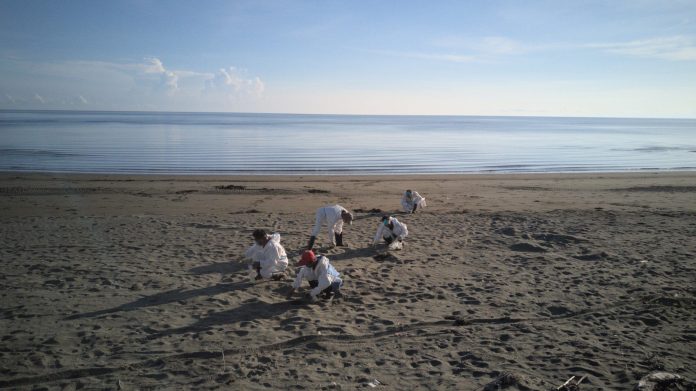Communities in oil-spill affected communities in the town of Pola in Oriental Mindoro province conducted a clean-up drive on April 22, Earth Day, as they called on the government to address “ecological disasters.”
Pola has been “ground zero” of the oil spill from the MT Princess Empress, which was carrying 900,000 liters of industrial oil when it capsized off the coast of Naujan town in February.
“We ask the government to move quickly and move correctly on this matter, or more communities and families will be affected,” said Father Edwin Gariguez, Social Action Center director of the Diocese of Calapan.
“We do not need Earth Day to raise awareness on the gravity of environmental degradation in the country,” said the priest.
“We just have to go to Pola and the other coastal communities affected by this spill,” he added.
Fisherfolks from oil spill affected communities who gathered in Pola decried what they described as “the burden that fisherfolks and affected communities have to bear” because of the disaster.
Earlier, a coalition of scientists and environmental groups reported “widespread economic impacts” and “lack of sufficient and sustained help” for communities across Mindoro Oriental following the recent oil spill.
“On top of environmental issues, residents are having to deal with little to no income these past few weeks, causing trickle-down effects on their health and education,” said Jordan Fronda, research coordinator of the Center for Environmental Concerns.
A report done by the group documented that over 90 percent of individuals in several affected communities “do not earn enough to meet their family’s needs” following the oil spill.
While most residents have received aid over the past few weeks, nearly 100 percent of respondents also reported that the aid they received was “insufficient.”
According to the group, residents even reported that the impacts of the oil spill and fishing ban “were worse than COVID” as the oil spill prevented them from getting food to eat.









